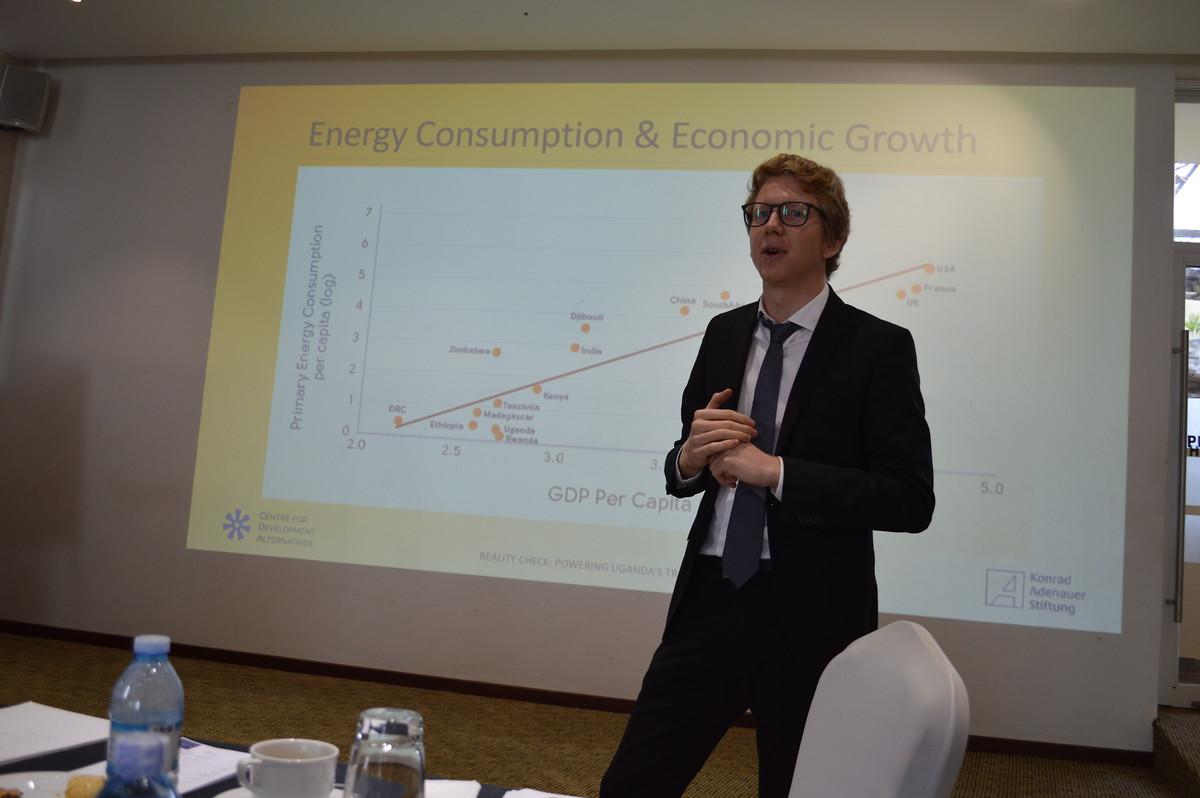Boosting Uganda’s economic transformation: Energy stakeholders and media representatives discuss Uganda’s future
活动情况介绍
The stakeholder’s consultation was organized to discuss the preliminary results of the tenth edition of the Reality Check publication series “Powering Uganda’s Transformation”, published by KAS and CDA. The publication intended to shift the public focus from energy access of households to energy for productive use.
During the presentation made by Max Waiter – CDA Executive Director, CDA gave insights into key findings of the study: The results show that Uganda’s current economy is heavily relying on biomass, a limited resource, and to a smaller amount on petroleum products and electricity. However, the study identified key constraints like unreliability of electricity, unequal access to electricity and the finite nature of biomass such as wood and charcoal. Therefore the results imply that Uganda’s energy sector must become more sustainable, inclusive, reliable and accessible in order to help Uganda’s economy to transform on the long term.
Following the presentation, stakeholders agreed, that especially the reliability of electricity has to be improved, in order to strengthen productivity and encourage foreign investments in Uganda. During the discussion, stakeholders and media representatives raised key questions concerning the implementation of the anticipated transformation: How much must be invested in order to create reliability and resilience of electricity? Should investments be made in generating or transmitting electricity? What has to be done in order to build capacities of the energy sector and satisfy the demand of energy use by the productive and private use? And how long will it take Uganda to become more independent from oil imports from Kenya and thereby reduce Uganda’s vulnerability from external economic shocks?
Although much of the debate concerned the future use of electricity, the majority of the Ugandan economy still relies on the limited resource - wood. But because the shift to a more inclusive energy use cannot be achieved over night, the discussion hence focused around how to make the use of biomass more efficient.
It became clear, that the energy sector has to organize itself, in order to improve mechanisms for a more efficient use of biomass as well as to encourage foreign investments. To achieve a better investment climate, a clear strategy regarding the priorities has to be found. For this purpose, companies, government representatives and investors have to come together and find an answer to the questions, whether one should invest in better technology or in making the current technology more efficient. A clear path would lead the way to a more effective use of biomass today and to reduce Uganda’s reliance on biomass in the future.
The event challenged different actors to strategically think about the role of the energy sector for Uganda’s economic transformation. Overall, the consultative meeting was very productive and engaging.
关于这个系列
德国康拉德•阿登纳基金会、它的培训机构、教育中心和其国外代表处每年举办数千个不同主题的活动。关于重要国际会议、大事活动、专题讨论会等等的报道我们及时且独家的公布在我们的网页www.kas.de。在这里您除了可看到内容摘要之外,还可看到额外的材料,例如照片、演讲稿、影片或录音。



